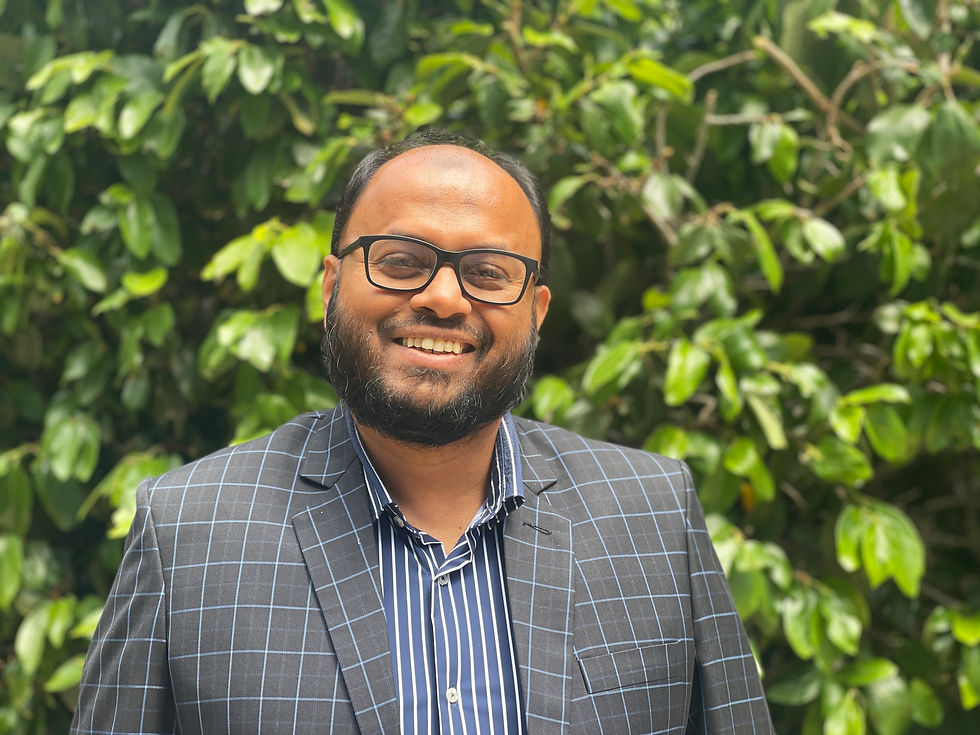PROFILE: Dr Ahmad Mabrur Rashedi
- ALCAS News Team
- Nov 3, 2022
- 2 min read
Updated: Nov 4, 2022

Dr. Mabrur Ahmad Rashedi is the Head of Carbon & Sustainability at Carbon Neutral, a leading carbon and sustainability services provider in Australia and Senior Scientist (Adjunct) at the College of Engineering, IT & Environment at Charles Darwin University. He is also a member of the ALCAS Board of Directors.
We spoke to Mabrur about how he became involved with LCA and his hopes for the future of LCA in general and ALCAS contribution in particular.
How did you first become involved in environmental studies in general, and LCA in particular?
I got involved in life cycle assessment during my PhD. I was working on a project on optimal material for wind turbine at that time. I developed some material selection models based on Cambridge Engineering Selector software. Soon I needed to develop some bespoke embodied carbon factors which led me to explore Simapro. The Simapro software opened the world of LCA to me.
Your PhD was focussed on the design of engineering structures, including life cycle strategies for impact reduction. Is there learning from your research that would be helpful to the ALCAS membership?
It is better to undertake an LCA prior to construction or at the development phase of a project, product or service. There are numerous options to choose at this stage to develop a sustainable product or solution. From that perspective, ALCAS members and LCA practitioners are in the appropriate position to advise and influence the relevant industries to undertake LCA at the very early stage of a project. Industries should also pursue the pathways to incorporate optimal, mass-minimal shapes with optimal, mass-minimal, sustainable materials to lessen the embodied carbon, energy and other footprints/impacts. This is something that I did during my PhD program for engineering structures.
You recently joined the Board of ALCAS. How would you like to see ALCAS contribute to the LCA industry in the future?
As the guiding LCA body in the region, ALCAS can educate and enlighten the industries and wider society on the capability of LCA in lessening the relevant emissions rather than just calculating these. Moreover, ALCAS can spark the interest of industries and public bodies in social life cycle assessment which focuses on a whole life cycle approach for many important ESG matrixes currently explored by the relevant stakeholders.
Do you have any predications on the future impacts of life cycle and circular economy thinking?
As sustainability has been a key theme in contemporary discussion, I can reasonably say that life cycle and circular economy thinking will have much better stride in future. Whole life cycle approach is significantly important from sustainability perspective as it includes all emissions or impacts a product or service accompanies rather than just focusing on a single life cycle stage; say, use phase of a product.



Comments